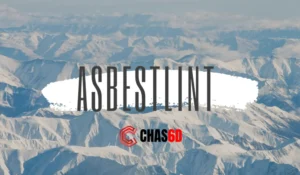Asbestlint Let’s conversation around something you might have listened in passing but didn’t pay much consideration to-Asbestlint. It might sound like a few darken mechanical term, but believe me, in case you care approximately your wellbeing (or work in ancient buildings), you would like to know what it is.
What Is Asbestlint?
A Speedy Breakdown
In straightforward terms, Asbestlint could be a sort of fiber-like molecule that stems from asbestos-containing materials. It carries on like lint-fine, dusty, and effectively airborne-but carries the harmful punch of asbestos. Not cool.
How It Got Its Title
The term could be a mix of “asbestos” and “build up,” coined to portray the wispy particles that shed from matured asbestos materials, particularly in ventilated or high-friction situations. It’s not an official restorative or legitimate term however, but it’s picking up footing in natural security circles.
Where Does Asbestlint Come From?
Natural Origins
Asbestos itself could be a actually happening mineral found in shake arrangements. When it breaks down-either due to disintegration or human interference-tiny particles can gotten to be airborne. Think of asbestlint as the powdered form of this stuff.
Mechanical Sources
Ancient manufacturing plants, shipyards, material plants, and indeed schools utilized asbestos in separator, ceilings, and channels. Over time, contact, vibration, or rot discharges lint-like filaments into the discuss. You breathe them in, and that’s where the genuine issue starts.
How Unsafe Is Asbestlint?
Why It’s a Enormous Bargain
You know how smoke from a campfire vanishes, but the scent waits in your hair and lungs? Same bargain here-except rather than a scent, it’s infinitesimal filaments implanting into your respiratory framework.
Tiny But Powerful
Asbestlint can’t be seen with the bare eye, but breathing in it can cause major wellbeing issues like asbestosis, mesothelioma, and lung cancer. These particles hold up profound in your lungs and don’t fair go absent.
Effects on Wellbeing
Here’s what long-term presentation can lead to:
Unremitting hacking and shortness of breath
Permanent lung damage
Mesothelioma (a rare and aggressive cancer)
Elevated risk of other respiratory diseases

Asbestlint vs. Asbestos: What’s the Contrast?
Comparable, But Not the Same
Think of asbestos as the fabric and asbestlint as the tidy it sheds. All asbestlint comes from asbestos, but not all asbestos is in build up shape. It’s the build up that’s most unsafe since it’s airborne and effectively breathed in.
Hidden Risks
Not at all like bulky asbestos boards or unmistakable separator, asbestlint is imperceptible and subtle. You might clean a room every day and still have airborne particles coasting around, particularly in ineffectively ventilated spaces.
Common Places You Might Find Asbestlint
In Old Buildings
If a building was constructed before the 1980s, there’s a decent chance asbestos is hiding somewhere. Pipes, tiles, attic insulation—any of these can break down and produce asbestlint over time.
In Textiles and Machinery
Believe it or not, old brake pads, gaskets, and even fireproof fabrics used asbestos fibers. These degrade and release fibers when used or moved. That “dust” could be deadly.
How to Detect Asbestlint
Signs You Should Watch For
Dusty ceilings or crumbling insulation
Persistent coughing among people in the same building
A history of asbestos in the building’s blueprints
Professional Testing Methods
Air monitoring and surface sampling by certified inspectors are the gold standard. DIY kits exist, but accuracy and safety often demand a professional touch.
What to Do If You Suspect Asbestlint
Don’t Panic, But Don’t Ignore
First run the show: Don’t touch it. Moment run the show: Don’t attempt to clean it together with your vacuum or broom. That spreads the filaments.
Who to Call and What to Anticipate
Call a certified asbestos examiner or natural hygienist. They’ll survey the situation, conduct tests, and exhort on whether you would like to empty or seal off the region.
The Legal Side of Things
Rules & Regulations Around Asbestlint
Different countries have different asbestos safety laws, but generally:
Employers must protect workers
Exposure must be monitored
Buildings need to disclose known asbestos materials
Worker Protection Laws
Workers must be given personal protective equipment (PPE), proper ventilation, and training if they’re working around known asbestos zones.
Can You Remove Asbestlint Yourself?
DIY vs. Professional Removal
Let’s keep it real—you probably shouldn’t. Not unless you’re certified and equipped. The risk of accidental exposure is just too high.
Safety Equipment Essentials
If you’re going near a potentially contaminated space, you must wear:
NIOSH-approved respirators
Disposable coveralls
Eye protection
Rubber gloves
How to Stay Safe in an Asbestlint-Prone Area
Precautionary Measures
Use HEPA filters in HVAC systems
Wet-clean surfaces to reduce dust
Keep air moving with fans—unless you’re stirring up particles
Long-Term Safety Planning
Schedule routine inspections
Replace outdated insulation with safe alternatives
Educate building occupants
Future of Asbestlint Awareness
Tech to the Rescue
New filtering tech can identify airborne particles speedier than ever some time recently. AI-powered sensors are presently being tried in mechanical buildings for real-time alarms.
Moving Toward More secure Materials
The world is gradually staging out asbestos, and with it, asbestlint. Secure choices like fiberglass and mineral fleece are taking center organize.
Conclusion
Asbestlint may sound like a few secretive buzzword, but it’s real-and unsafe. On the off chance that you’re living, working, or indeed redesigning more seasoned spaces, mindfulness can be a strict lifesaver. It’s little, imperceptible, and tireless, but with the proper knowledge and proactive steps, you’ll be able Secure yourself and those around you.
FAQs
1. Can regular dust contain asbestlint?
Not usually, but if it’s from an asbestos-containing source, then yes—what looks like “just dust” could be deadly.
2. Is there a secure level of introduction to asbestlint?
Technically, no sum is considered totally secure. Indeed negligible presentation over time can cause harm.
3. Can asbestlint travel through air vents?
Absolutely. That’s one of the scariest things—it can spread unnoticed throughout a building.
4. Are pets at risk from asbestlint?
Yes. Pets breathe the same discuss we do, and they can be indeed more defenseless due to their estimate and time went through on floors.
5. How much does professional testing for asbestlint cost?
It depends on your location and the building size, but expect anywhere between $200–$800 for initial testing.

